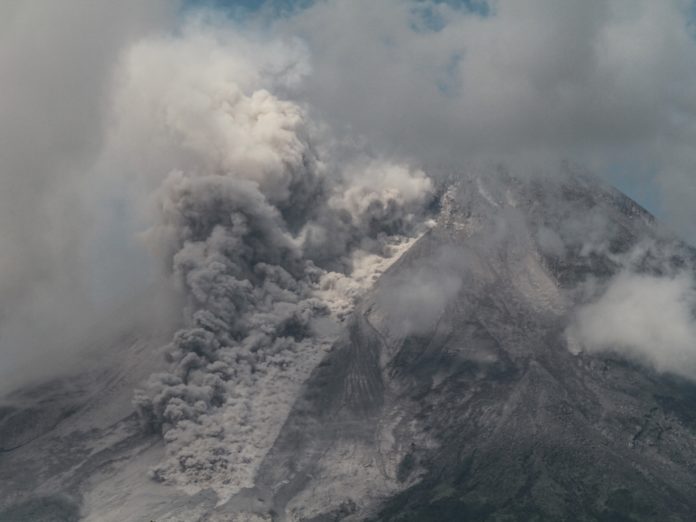At least eight villages near the volcano have been affected by volcanic ash.
Indonesia’s Mount Merapi has erupted, spewing out smoke and ash that blanketed villages near the crater and forcing authorities to halt tourism and mining activities on the slopes of the country’s most active volcano.
The volcano, located in Indonesia’s Yogyakarta special region, erupted at about 12pm (05:00 GMT) on Saturday and unleashed clouds of hot ash and a mixture of rock, lava and gas that travelled up to seven kilometres (4.3 miles) down its slopes.
A column of hot clouds rose 100 metres into the air, said the National Disaster Management Agency’s spokesperson Abdul Muhari. There were no immediate reports of casualties.
The eruption throughout the day blocked out the sun. At least eight villages near the volcano have been affected by volcanic ash, an officer at one of Merapi’s observation posts said.
Images broadcast on local outlet Kompas TV showed ash-covered houses and roads at a village near the volcano, located on Java Island.

The 2,963 metre-high (9,721 feet) Merapi is one of Indonesia’s most active volcanoes. Its last major eruption in 2010 killed more than 300 people and forced the evacuation of some 280,000 residents.
Saturday’s was Merapi’s most powerful eruption since 1930, when about 1,300 people were killed. An eruption in 1994 left about 60 people dead.
The volcano’s alert status has remained at the second-highest level since 2020 after showing renewed activity.
Indonesia, which has nearly 130 active volcanoes, sits on the Pacific Ring of Fire, where the meeting of continental plates causes high volcanic and seismic activity.

